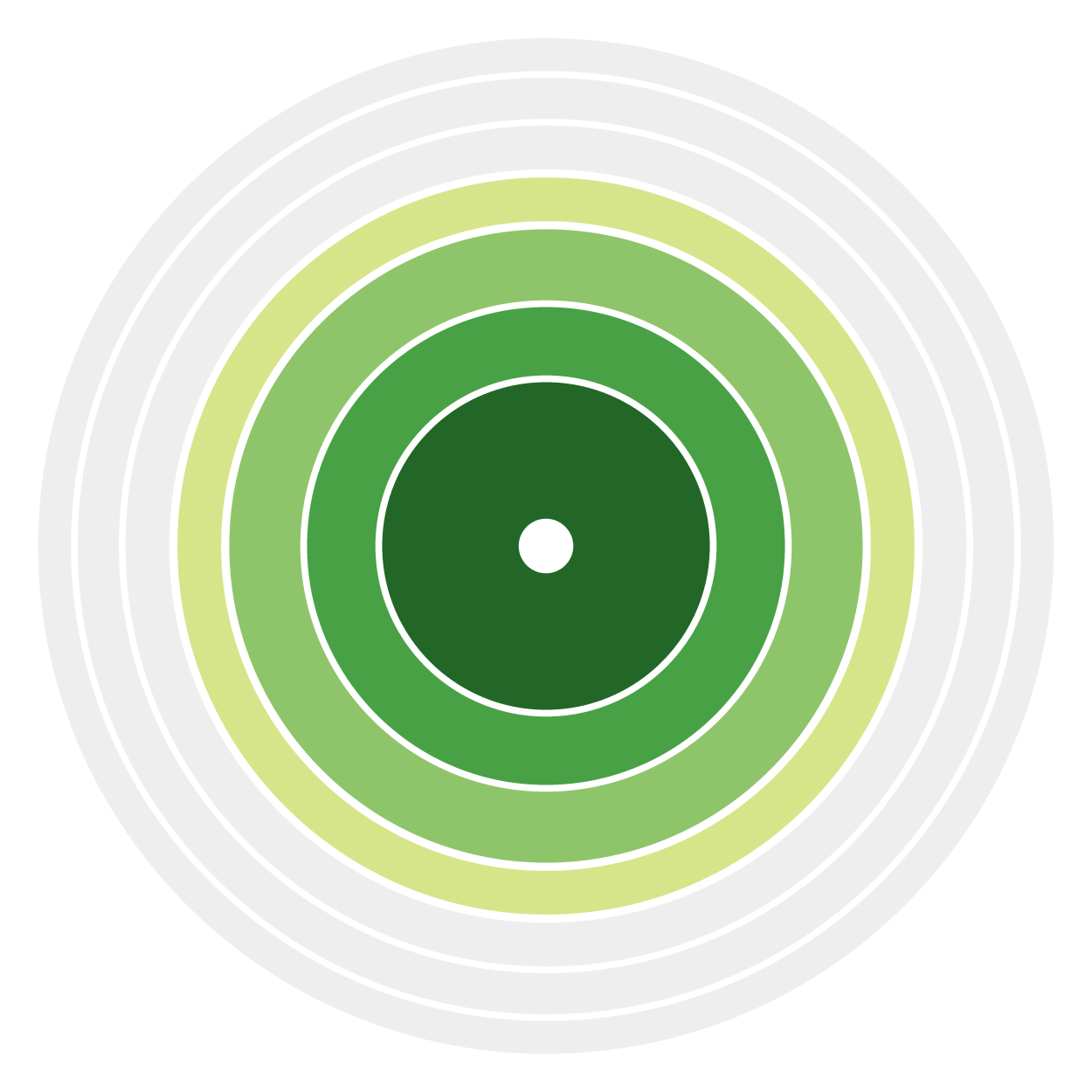Most useful words for each reading of every Jōyō kanji
Kanji Usefulness Level 1 all Level-Appropriate Vocab
QUICK STUDY
FLASHCARDS
WORD SEARCH
DOWNLOAD
noun
1. one person (esp. 一人)2. alone; unmarried; solitary (esp. 独り; this meaning is restricted to reading ひとり)
(click the word to view an additional 1 reading and 4 forms, useful expressions, examples and links)
2. at the same time
(click the word to view an additional 1 meaning and 2 forms, examples and links)
'no' adjective, suffix
2. best(click the word to view an additional 3 meanings and 5 forms, examples and links)
noun (temporal) (jisoumeishi)
1. today; this day2. these days; recently; nowadays (this meaning is restricted to reading こんにち)
(click the word to view an additional 3 readings and 2 forms, useful expressions, examples and links)
adverbial noun (fukushitekimeishi), noun (temporal) (jisoumeishi)
1. day; days (this meaning is restricted to form 日)2. sun; sunshine; sunlight
(click the word to view an additional 1 meaning and 2 forms, examples and links)
adverbial noun (fukushitekimeishi), noun (temporal) (jisoumeishi)
every day(click the word to view an additional 2 forms, examples and links)
noun, 'no' adjective
convention; tournament; mass meeting; rally(click the word for examples and links)
noun (temporal) (jisoumeishi)
every year; yearly; annually(click the word to view an additional 1 reading and 2 forms, examples and links)
adverbial noun (fukushitekimeishi), noun (temporal) (jisoumeishi)
this year(click the word to view an additional 1 reading, examples and links)
'su' godan verb, transitive verb
1. to take out; to get out2. to put out; to reveal; to show
(click the word to view an additional 6 meanings, examples and links)
noun, 'no' adjective
person's origin (e.g. city, country, parentage, school)(click the word for examples and links)
ichidan verb, intransitive verb
1. to leave; to exit; to go out; to come out; to get out (opposite: 入る)2. to leave (on a journey); to depart; to start out; to set out
(click the word to view an additional 18 meanings, useful expressions, examples and links)
expression, noun
boy; male child; baby boy(click the word to view an additional 5 forms, examples and links)
noun
1. son2. penis (vulgar expression or word; this meaning is restricted to reading むすこ)
(click the word to view an additional 3 forms, examples and links)
noun, 'suru' verb, 'no' adjective
opinion; view; comment(click the word for useful expressions, examples and links)
ichidan verb, transitive verb
1. to see; to look; to watch; to view; to observe2. to look over; to look on; to assess; to examine; to judge (see also: 診る)
(click the word to view an additional 4 meanings and 3 forms, useful expressions, examples and links)
noun, 'no' adjective
foreign country(click the word to view an additional 1 reading and 2 forms, examples and links)
noun
1. country; state2. region
(click the word to view an additional 4 meanings and 3 forms, examples and links)
adverbial noun (fukushitekimeishi), noun (temporal) (jisoumeishi)
1. not less than; ... and more; ... and upwards (see also: 余)2. beyond ... (e.g. one's means); further (e.g. nothing further to say); more than ... (e.g. cannot pay more than that)
(click the word to view an additional 3 meanings and 2 forms, examples and links)
'ru' godan verb, intransitive verb
1. to rise; to go up; to come up; to ascend; to be raised (opposite: 下がる)2. to enter (esp. from outdoors); to come in; to go in
(click the word to view an additional 24 meanings and 5 forms, examples and links)
Most common form: わかる
'ru' godan verb, intransitive verb
1. to understand; to comprehend; to grasp; to see; to get; to follow (often written with kana only)2. to become clear; to be known; to be discovered; to be realized; to be realised; to be found out (often written with kana only)
(click the word to view an additional 4 forms, useful expressions, examples and links)
ichidan verb, intransitive verb
1. to live; to exist2. to make a living; to subsist
(click the word to view an additional 3 meanings and 2 forms, examples and links)
irregular godan verb 'iku/yuku', intransitive verb
1. to go; to move (in a direction or towards a specific location); to head (towards); to be transported (towards); to reach (see also: 来る)2. to proceed; to take place (see also: 旨く行く; い sometimes omitted in auxiliary use)
(click the word to view an additional 1 reading, 8 meanings and 4 forms, useful expressions, examples and links)
noun
two persons; two people; pair; couple(click the word to view an additional 1 reading and 3 forms, examples and links)
numeric
two (ふ and ふう used mainly when counting aloud. 弐, 貳 and 貮 are used in legal documents.)(click the word to view an additional 3 readings and 5 forms, examples and links)
adverbial noun (fukushitekimeishi), noun (temporal) (jisoumeishi)
daytime; during the day; time from sunrise until sunset; diurnal period(click the word to view an additional 1 reading, examples and links)
noun
watch; clock; timepiece(click the word to view an additional 1 reading and 2 forms, examples and links)
numeric
ten (拾 is used in legal documents)(click the word to view an additional 2 readings and 5 forms, examples and links)
pronoun
1. she; her2. her
(click the word to view an additional 1 meaning and 2 forms, examples and links)
expression, noun
1. girl; daughter2. young woman
(click the word to view an additional 1 reading and 5 forms, examples and links)
numeric
1. three (参 is used in legal documents)prefix
2. tri-(click the word to view an additional 1 reading and 4 forms, examples and links)
adverbial noun (fukushitekimeishi), noun (temporal) (jisoumeishi)
morning; a.m.(click the word for examples and links)
noun, 'suru' verb
entry to school or university; matriculation; enrolment (in university, etc.)(click the word for examples and links)
adverbial noun (fukushitekimeishi), noun (temporal) (jisoumeishi)
afternoon; p.m.(click the word to view an additional 2 forms, examples and links)
noun
eldest son (may be the only son); first-born son(click the word for examples and links)
2. long (time); lengthy
(click the word to view an additional 2 forms, examples and links)
noun
1. not exceeding; and downward; ... and below2. below (e.g. standard); under (e.g. a level)
(click the word to view an additional 1 reading, 1 meaning and 2 forms, examples and links)
noun, noun (suffix)
1. down-train (going away from Tokyo)2. down-slope; downward going
(click the word for examples and links)
to study (in depth); to learn; to take lessons in
(click the word to view an additional 2 forms, examples and links)
adverbial noun (fukushitekimeishi), noun
every month; each month; monthly(click the word to view an additional 1 reading and 3 forms, examples and links)
pronoun, 'no' adjective
1. what(click the word to view an additional 1 reading, 4 meanings and 3 forms, examples and links)
adverbial noun (fukushitekimeishi), noun (temporal) (jisoumeishi)
next year(click the word to view an additional 2 forms, examples and links)
Most common form: くる
irregular verb くる, intransitive verb
1. to come (spatially or temporally); to approach; to arriveirregular verb くる, intransitive verb, auxiliary verb
2. to come back; to do ... and come back (see also: 行って来る)(click the word to view an additional 3 meanings and 2 forms, examples and links)
noun, 'suru' verb, 'no' adjective
1. telephone call; phone call(click the word for examples and links)
'su' godan verb, transitive verb
1. to talk; to speak; to converse; to chat2. to tell; to explain; to narrate; to mention; to describe; to discuss
(click the word to view an additional 1 meaning and 2 forms, useful expressions, examples and links)
2. expensive
(click the word to view an additional 2 forms, useful expressions, examples and links)
adverbial noun (fukushitekimeishi), noun (temporal) (jisoumeishi)
from now on; hereafter(click the word for examples and links)
adverbial noun (fukushitekimeishi), noun
now; the present time; just now; soon; immediately; (one) more(click the word for examples and links)
'ku' godan verb, transitive verb
1. to write; to compose; to pen2. to draw; to paint (see also: 描く)
(click the word for examples and links)
'su' godan verb, transitive verb
1. to unfasten; to undo2. to remove; to take off; to deinstall
(click the word to view an additional 2 meanings, examples and links)
numeric
four (肆 is used in legal documents)(click the word to view an additional 2 readings and 4 forms, examples and links)
noun
1. teacher; master; doctor (honorific)suffix
2. with names of teachers, etc. as an honorific (honorific)(click the word to view an additional 1 reading and 1 meaning, examples and links)
'ku' godan verb, transitive verb
1. to hear2. to listen (e.g. to music) (usu. 聴く)
(click the word to view an additional 4 meanings and 3 forms, useful expressions, examples and links)
'ru' godan verb, transitive verb
1. to talk about; to speak of; to tell; to narrate2. to recite; to chant
(click the word to view an additional 1 meaning, examples and links)
noun, 'no' adjective
English (language)(click the word to view an additional 2 forms, examples and links)
ichidan verb, transitive verb
1. to eat2. to live on (e.g. a salary); to live off; to subsist on
(click the word to view an additional 2 forms, examples and links)
noun
1. tree; shrub; bush2. wood; timber
(click the word to view an additional 1 form, useful expressions, examples and links)
numeric
six (陸 is used in legal documents)(click the word to view an additional 2 readings and 3 forms, examples and links)
numeric
1. seven (漆 is used in legal documents)prefix
2. hepta-(click the word to view an additional 2 readings and 4 forms, examples and links)
noun, 'no' adjective
1. grandfather2. old man (see also: 爺; this meaning is restricted to reading おおじ)
(click the word to view an additional 5 readings and 1 meaning, examples and links)
adverbial noun (fukushitekimeishi), noun, noun (suffix)
middle; half; semi; halfway; partly(click the word for examples and links)
numeric
100; hundred (陌 and 佰 are used in legal documents)(click the word to view an additional 2 readings and 5 forms, examples and links)
noun
1. earth; soil; dirt; clay; mud2. the earth (historically, esp. as opposed to the heavens); the ground; the land
(click the word to view an additional 2 meanings and 2 forms, examples and links)
noun
1. plot of land; lot; soil2. locality; region; place
(click the word to view an additional 3 readings, examples and links)
'mu' godan verb, transitive verb
1. to read2. to count (see also: さばを読む; now mostly used in idioms)
(click the word to view an additional 1 meaning, examples and links)
noun, 'suru' verb
1. left and right2. influence; control; domination
(click the word to view an additional 2 readings, examples and links)
noun
1. rest; recess; respite2. vacation; holiday; absence; suspension
(click the word to view an additional 1 meaning, examples and links)
Kanshudo is your AI Japanese tutor, and your constant companion on the road to mastery of the Japanese language.
To get started learning Japanese, just follow the study recommendations on your Dashboard.
You can use Quick search (accessible using the icon at the top of every page) to look up any Japanese word, kanji or grammar point, as well as to find anything on Kanshudo quickly.
For an overview, take the tour.




